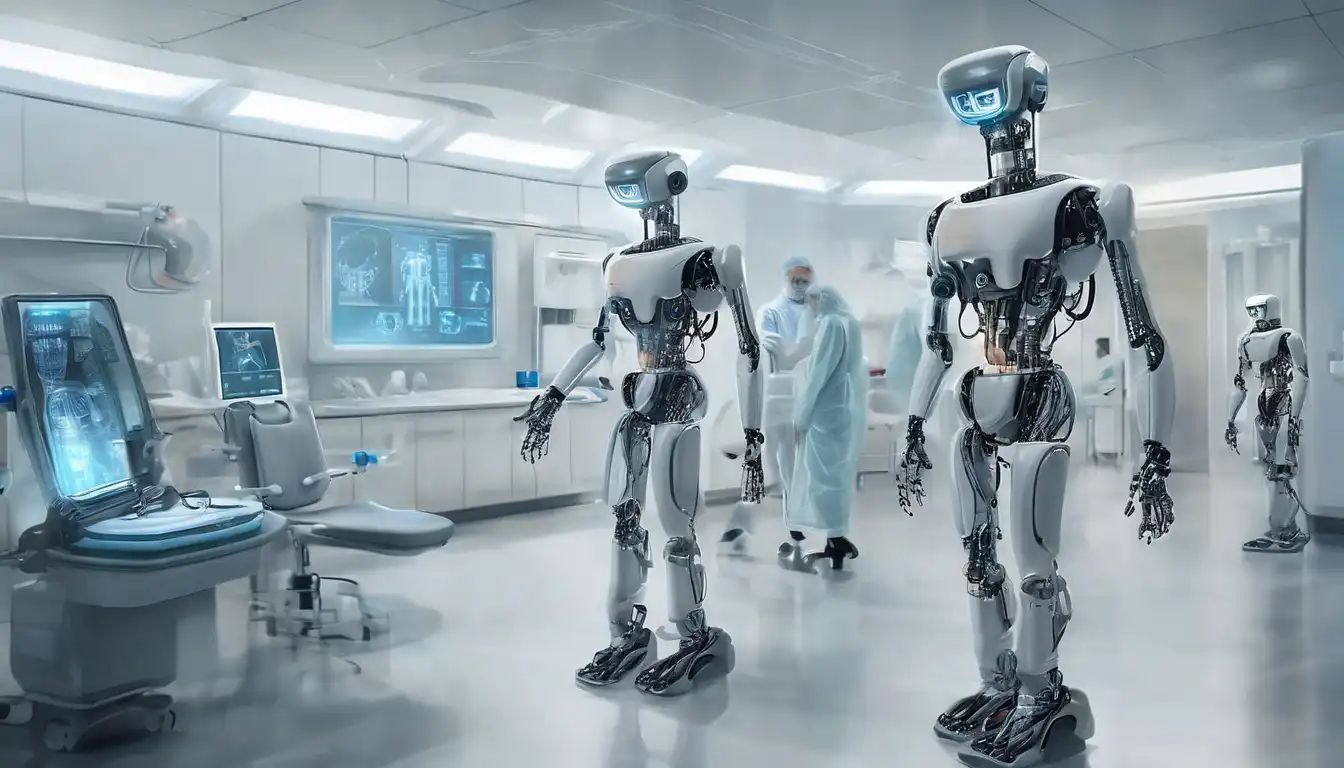The Next Era of Robotics in Healthcare
The integration of robotics into healthcare is transforming patient care, surgical procedures, and rehabilitation processes. This technological advancement is not just a glimpse into the future; it's a present reality that's enhancing efficiency, precision, and outcomes in medical settings worldwide.
Transforming Surgical Procedures
Robotic surgery, once a futuristic concept, is now a critical tool in operating rooms. With unparalleled precision, robots assist surgeons in performing complex procedures with minimal invasiveness, leading to quicker recovery times and reduced hospital stays. The da Vinci Surgical System, for example, has become synonymous with robotic-assisted surgery, offering 3D high-definition vision and tiny wristed instruments that bend and rotate far greater than the human hand.
Enhancing Patient Care and Rehabilitation
Beyond the operating room, robotics plays a pivotal role in patient care and rehabilitation. Robotic exoskeletons are enabling individuals with spinal cord injuries to walk again, while robotic prosthetics are offering amputees unprecedented levels of mobility and functionality. These innovations are not just improving physical health but are also significantly boosting patients' mental well-being and quality of life.
Streamlining Hospital Operations
Robotics is also revolutionizing hospital logistics and operations. Autonomous mobile robots (AMRs) are being deployed for tasks such as delivering medications, transporting lab samples, and even disinfecting patient rooms. This not only increases operational efficiency but also minimizes human contact with hazardous materials, enhancing safety for both patients and healthcare workers.
The Role of AI in Robotics
Artificial intelligence (AI) is the driving force behind the next generation of healthcare robotics. AI algorithms enable robots to learn from vast amounts of data, improving their ability to assist in diagnostics, treatment planning, and even predicting patient outcomes. This synergy between AI and robotics is paving the way for personalized medicine, where treatments are tailored to the individual's unique genetic makeup and health profile.
Challenges and Ethical Considerations
Despite the promising advancements, the integration of robotics in healthcare is not without challenges. High costs, the need for specialized training, and ethical concerns regarding patient privacy and the depersonalization of care are significant hurdles that need to be addressed. However, with ongoing research and development, these challenges are gradually being overcome, making robotics an indispensable part of modern healthcare.
Looking Ahead
The future of robotics in healthcare is bright, with continuous innovations aimed at improving patient outcomes, reducing healthcare costs, and making medical procedures safer and more efficient. As technology advances, we can expect to see even more groundbreaking applications of robotics in healthcare, further revolutionizing the way we approach medicine and patient care.
For more insights into the latest technological advancements in healthcare, explore our technology in healthcare section.
